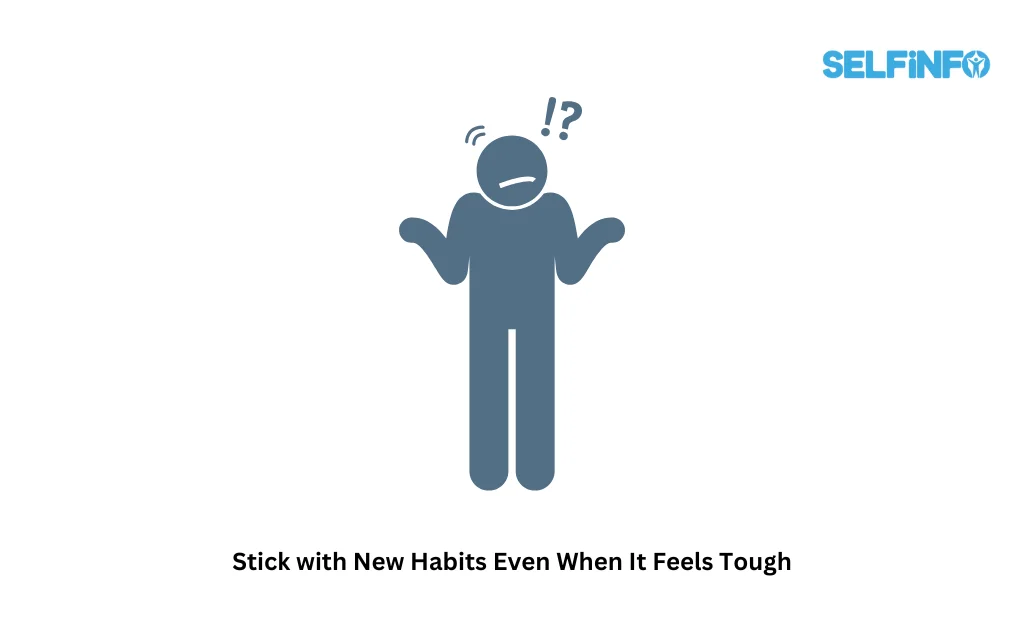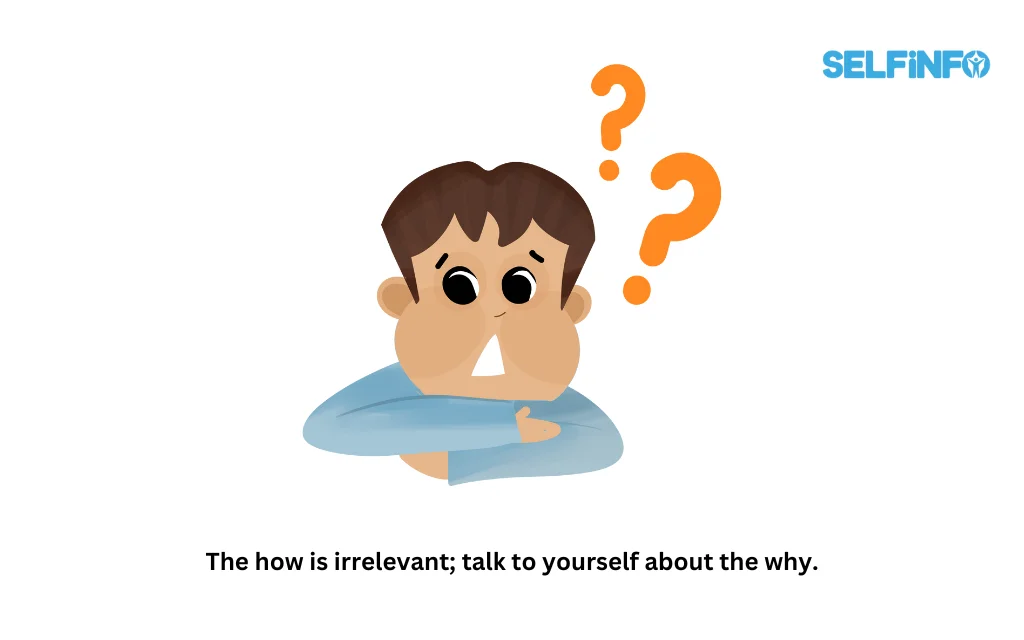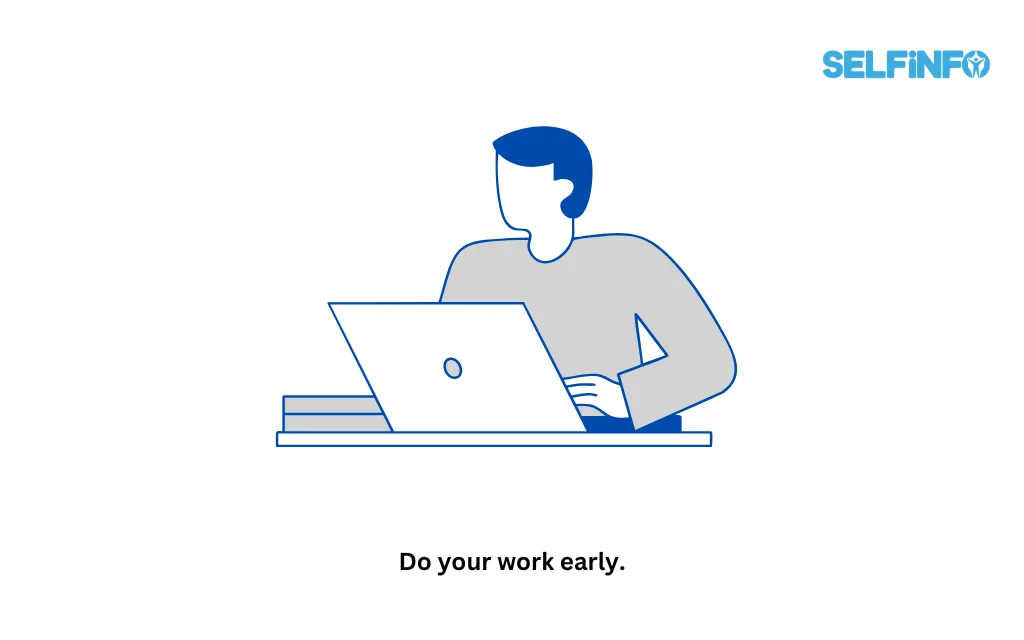Stick with that belief, and you’ll see the challenge—bad habits are easy to keep, while good habits take effort to build.
For me, it is undoubtedly true. Like the majority of us, I intended to begin working out six years after I began my profession.
However, it never took place. I would occasionally do it for two or three weeks, but nothing ever stuck.
And then, suddenly, it did.
And it did since I experienced a transformation. For the following twenty years, I wanted to be able to keep up with my son, who was old enough to imitate me.
That basically frightened me.

I came to the realization that he was going to base a large part of his opinion about how to live life and what habits were important on what he observed me doing in a variety of areas, including fitness.
I therefore stopped pretending to start working out and started doing it.
I combined the methods listed below to form my new habit.
They can help you increase your good habit quotient and solidify your new habit.
1. How “meaning well” guarantees failure.
We have all assured ourselves that even if we did not accomplish our goals, we still had good intentions.
A excellent approach to ensure that your habit will not stick is to say, “I meant well.” Making your intentions the final step is what it is.
The issue is that having excellent intentions does not really need any action on your part. Thus, you won’t.
To truly create your new habit, you must decide that results, not intentions, are what you value.
The only way to achieve the desired results is to start performing the habit, therefore you will stop talking about it or attempting to find out the best method to accomplish it once you change your value from intentions to results.
Along the way, you will discover it, and once you do, you will be much closer to the outcome you desire.
2. Mondays aren’t special; start your new habit today.

On the day you make the decision to develop a habit, get started.
You do not have to wait for Monday to come around again, or until you have slept for eight hours straight the day after, or until a fairy tells you to start today.
It will be easier to form your habit if you start today.
You want to avoid the following two outcomes of delaying: a) you will lose the days that you could have used to practice your new habit between when you decided to start and when you actually did, and b) you will have used those days to practice the exact thing you are trying to avoid, not the habit.
Thus, get started right away and make the most of those valuable days by practicing the outcome you truly desire.
3. Why torture yourself?
Developing a new habit is difficult, and maintaining it is even more so. However, it is much easier to stick to if you know why you are doing it.
Using my own life as an example, I tried working out since I felt it was “supposed to do” and I wanted to shed the excess pounds because my clothes were too tight. However, it did not work.
But when my “why” changed to being able to keep up with my energetic son, being fit enough to play and move well into old age, and setting a good example for him, it all made sense.
I no longer feel relieved when I have to skip a workout; instead, I become upset about it. There has been a significant shift.
You must have a real objective that you care about and that is yours, not what other people think you should do, if you want to make the change.
Then, developing the habit will be more about the motivation than the behavior. The habit that serves only as a tool to achieve your desired goal.
Therefore, if you skip a day, you are not only missing a day of your routine; you are also missing a chance to reach your objective. It is considerably more difficult to skip that.
4. The how is irrelevant; talk to yourself about the why.

It is a big one. Whether or not the new habit persists will largely depend on how we talk to ourselves about it.
Is it the habit itself that we discuss, or is it the reason we want the behavior in the first place?
Here’s what I mean, using my example of fitness.
My self-talk back when I was having trouble sticking was usually something like this:
“I will skip the workout today since I am exhausted and need an additional hour of sleep, even though I watched three hours of Netflix before deciding to go to bed the night before. I will get it tomorrow, so it is not a huge deal.
After having this discussion a few mornings in a row, I finally stopped bothering to have it; going to the gym was no longer an option.
Then, however, things changed. I started talking to myself about my “why” rather than my “how” (the actual habit) on the mornings when I had not had a good night’s sleep.
That went like this: “Do I want to trade an hour of sleep for this opportunity to set a good example and be a more active father?” I did not say “yes.”
Asking yourself if today is the day to break a habit should be framed around the outcome you want to achieve rather than the steps you are taking to get there.
Because bailing would be tantamount to deciding you no longer want something, you are far less inclined to do so.
5. Decide once, and never decide again.
You are given the chance to stop every time you are asked if you will continue your new behavior.
Therefore, take it easy on yourself; make the decision at the outset that whatever your habit is, that is what you do going forward, and never think about it again.
When I first started working out on a regular basis, I really relied on this one.
I did not make the decision to work out today.
I made the decision to work out three days a week (MWF) in order to achieve and maintain my fitness.
The option of not exercising ceased to exist. I stopped questioning myself if I would work out every day since I had already answered that question when I made the decision to get in shape.
I really need to remind myself of that occasionally, especially on nights when I do not get quite as much sleep as I would want.
But I still do not ask the question very often. I simply get up and leave.
Make a decision once and move on.
Declare that you are the one who engages in your habit because you wish to accomplish your objective, and then follow through on that statement.
6. Do your work early.

Before you have to commit, put yourself in a committed position. Take action that will force you to actively break the habit in order to prevent doing it.
To continue my workout example, the night before I work out, I gather my workout attire and sneakers, pack them in my gym bag, and stack them in my living room.
I will now need to put those garments back up in order to avoid going to the gym. I have to take proactive steps to avoid working exercise. So, instead, I get dressed and work out.
If you can find anything that will bind you to your new habit before you actually have to do it, you will probably just do it instead of undoing what you did because you already have to do something.
Now What?
Choose one or more of the six strategies and use them to break that bad behavior.
Take action now.
This time, you will be pleasantly astonished at how much simpler it is to really follow through on it.
Before you do that, though, I would love to know what—either one of the six aforementioned habits or something else—has helped you establish and maintain new ones. Kindly let me know by leaving a comment below!
